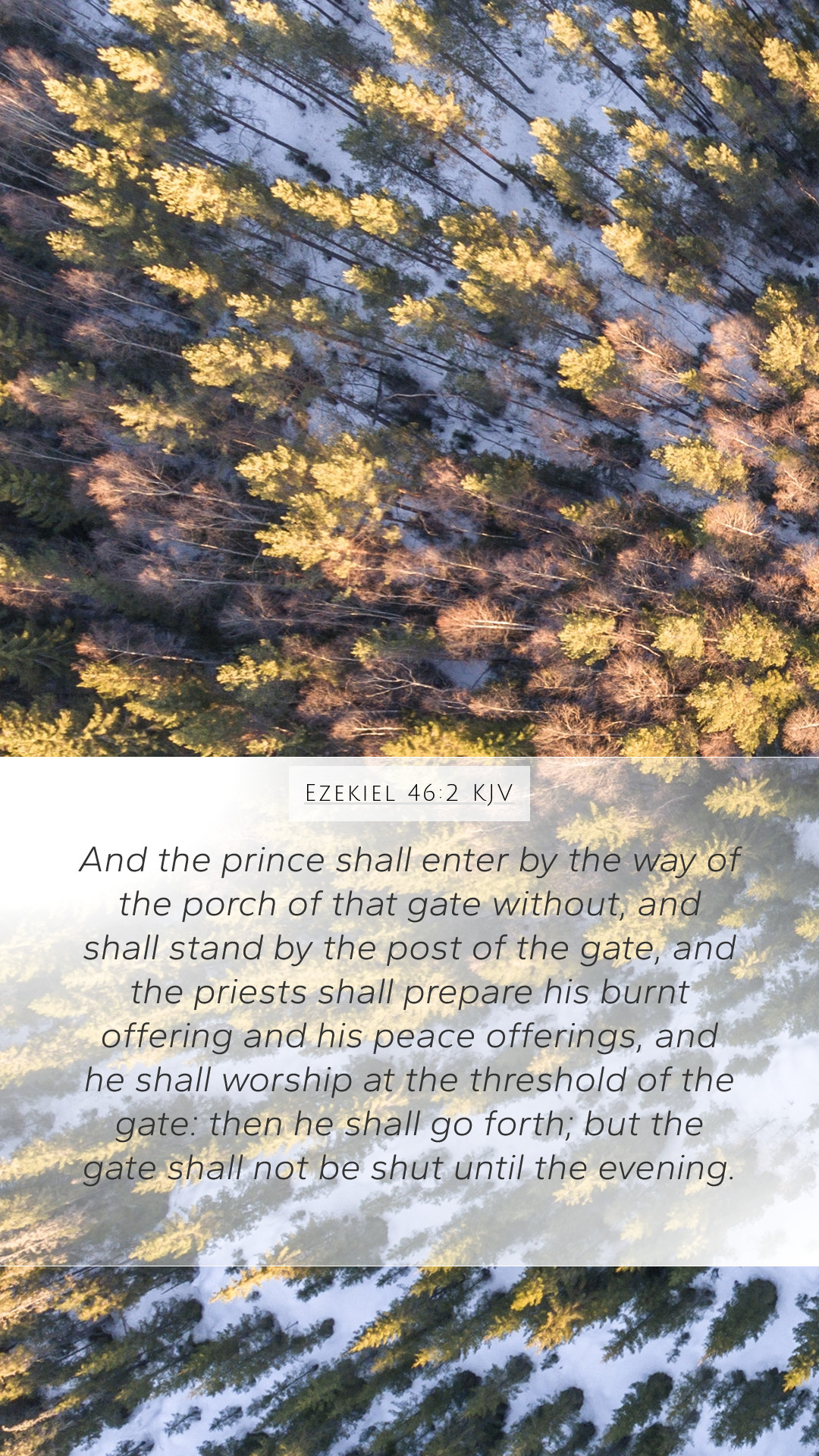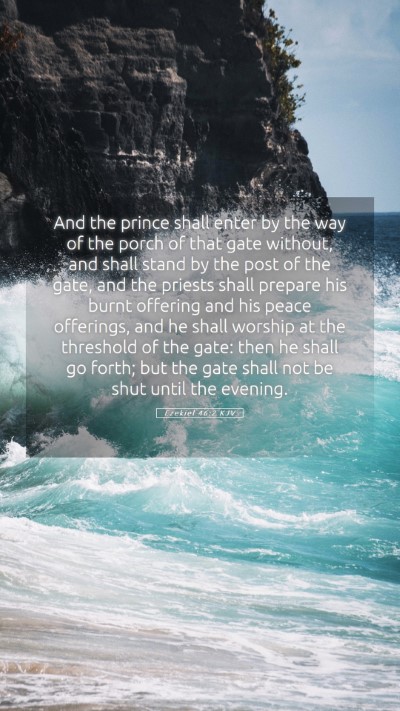Bible Verse Meaning and Commentary: Ezekiel 46:2
Ezekiel 46:2 states: "And the prince shall enter by the way of the porch of that gate without, and shall stand by the post of the gate, and the priests shall prepare his burnt offering and his peace offerings, and he shall worship at the threshold of the gate: then he shall go forth; but the gate shall not be shut until the evening."
Overview
This verse is part of a larger vision concerning the future temple of God as revealed to Ezekiel. It describes the role of the prince in the temple worship and outlines the protocols of entering the worship space. The specifics of this verse carry great importance in understanding the relationship between the leaders, priests, and the people of Israel.
Scripture Analysis
Examining Ezekiel 46:2 through public domain commentaries provides valuable insights into what this scripture conveys regarding worship practices and leadership in the context of ancient Israel.
Matthew Henry's Commentary
Henry emphasizes the significance of the prince's direct involvement in the sacrificial system, showcasing his role as not just a leader but also as a worshiper. He notes that the prince acts with humility and reverence before the Lord. The fact that the gate shall remain open until evening suggests a welcome atmosphere for worship, indicating God's continued readiness to receive his people. Henry reflects on the importance of public worship, illustrating how it plays a vital role in community cohesion and divine acknowledgment.
Albert Barnes' Commentary
Barnes draws attention to the layout and imagery of the temple worship, highlighting the structure and rituals involved in the sacrificial system. He explains the symbolic nature of the porch, signifying a transition from the secular realm to the sacred. The mentioned offerings—burnt offerings and peace offerings—hold deep theological meanings, representing atonement and communion with God. Furthermore, Barnes infers this imagery underlines the nature of the coming Messiah, who embodies both kingly and priestly roles.
Adam Clarke's Commentary
Clarke elaborates on the phrase "the threshold of the gate," suggesting it symbolizes a place where the divine and human realms meet. He also emphasizes the repeated nature of this worship, which indicates that true worship is a consistent and vital practice in a believer's life. Clarke suggests that not only does this verse illuminate the rituals of the Israelites, but it also serves as a prophetic reference to the Christ, who offers Himself as the ultimate sacrifice and mediator between God and humanity.
Key Themes and Insights
- Royal Priesthood: The mention of the prince signifies a blend of royal authority and priestly duty, suggesting the unification of leadership roles in worship.
- Accessibility to God: The instruction that the gate shall not be shut until evening reflects God’s open invitation for worship, symbolizing believers' access to the Lord.
- Communal Worship Practices: This verse underscores the significance of communal worship where the leader participates alongside the people, encouraging collective reverence.
- Prophetic Foreshadowing: The activities described can be seen as foreshadowing the messianic role of Jesus Christ in the New Testament, fulfilling the law through His sacrificial love.
Application to Daily Life
Understanding Ezekiel 46:2 involves recognizing the importance of worship in our daily lives. As believers, we are called to approach God with a heart of reverence, and this scripture invites us to cultivate a lifestyle of worship that honors Him in all aspects of life. Just as the prince engaged in worship, we must also engage actively in our faith community, demonstrating leadership through our service and dedication to God.
Cross References
- Isaiah 6:1-5: Vision of the Lord's holiness and the role of worship.
- Hebrews 10:19-22: Encouragement to approach God with confidence, reflecting the invitation from the Old Testament worship.
- 1 Peter 2:9: The priesthood of all believers emphasizes the accessibility and duty of worship for every believer.
Conclusion
In summary, Ezekiel 46:2 offers profound insights into the structure of worship, the responsibilities of leadership, and the unifying nature of communal faith practices. Understanding this verse allows believers to deepen their appreciation for public worship and recognize the enduring significance of approaching God with humility and devotion.


